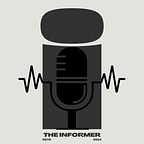Let’s face it: Joe Rogan has become a cultural lightning rod, and mainstream media outlets like CNN and MSNBC are scrambling to keep up. If you’ve even remotely paid attention to the media landscape over the past few years, you’ve likely noticed something odd—Joe Rogan, a stand-up comedian turned podcast juggernaut, has garnered more influence and a bigger following than many traditional media powerhouses.
Mainstream outlets? Not so thrilled about that.
Enter CNN and MSNBC, who have taken their fair share of swings at Rogan. They've questioned his takes on everything from COVID-19 treatments to Kamala Harris. To hear them tell it, Rogan’s a dangerous rogue (pun intended), spreading misinformation like candy on Halloween. But here’s the kicker: the more they attack him, the more his popularity skyrockets.
It’s not just because Rogan’s episodes are long and uncensored (though, for some people, that alone is a selling point). No, there’s something deeper going on here—a seismic shift in how people consume information. And guess what? It’s not looking good for the folks still reading off teleprompters.
CNN vs. Joe Rogan: The Gloves Came Off, But Did Anyone Notice?
Remember when COVID was the only thing anyone could talk about? It was also when CNN zeroed in on Joe Rogan. The headlines practically wrote themselves: "Joe Rogan Spreads Dangerous Misinformation About COVID Treatments."
But what was CNN really upset about? Was it that Rogan mentioned treatments that were outside the CDC’s guidelines, or was it that his episode pulled in millions more viewers than any of their primetime slots could dream of? You see, the problem wasn’t just the content—it was that people were listening.
Rogan didn’t hold a press conference. He wasn’t sitting behind a gleaming news desk with ten consultants approving his talking points. He was, as usual, sitting across from a guest in a relaxed studio, shooting the breeze, and asking questions—questions that a lot of people, frankly, were asking at home.
Sure, some of his COVID takes were controversial, but isn’t that the point of having open, honest discussions? Meanwhile, CNN’s headlines painted Rogan as a quack with a podcast, stoking the flames of a public health crisis. The irony, of course, is that this only increased his appeal. Rogan wasn’t spoon-feeding anyone a narrative—he was exploring ideas, however messy they might be.
That’s something mainstream media rarely does anymore. After all, when was the last time a cable news anchor said, “I don’t know, let’s explore that”? (I’ll wait.)
MSNBC: "Misinformation" or Just a Different Perspective?
MSNBC, ever the eager tag team partner, didn’t sit this one out either. From COVID to Kamala Harris, they’ve been quick to label Rogan as part of the ‘misinformation machine.’ His comments on the vice president? Controversial, yes. But what really got them worked up was the fact that Rogan wasn’t shy about sharing opinions that don’t fit into their tidy political boxes. He didn't march to the media’s prescribed rhythm, and that, dear reader, is the true crime in their eyes.
MSNBC’s go-to move is to package Rogan as someone who oversimplifies complex issues—like, say, race and politics. But again, that critique ignores one crucial detail: Rogan’s audience isn’t looking for scripted sound bites. They’re after long-form, messy, multi-faceted conversations. And surprise, surprise, people love it.
It’s the format, the honesty, and the authenticity that’s drawing people in—not some fabricated sense of intellectual superiority. Rogan isn’t afraid to ask ‘dumb questions,’ and therein lies the charm. He’s not performing; he’s learning in real-time, with millions of people along for the ride.
The Podcast Phenomenon: Rogan's Popularity Proves There's a Growing Distrust of Mainstream Media
Let’s call it like it is: the rise of Joe Rogan is symbolic of a bigger trend. People are sick of being talked at by media elites who always seem to know what’s best. The traditional media narrative? It’s getting old. Fast. And podcasts, specifically Rogan's, are offering something the old guard can't: unfiltered, unscripted, real conversations.
Rogan’s critics would have you believe that his listeners are mindlessly absorbing misinformation. But here’s the reality: Rogan’s audience is savvy. They don’t blindly accept everything they hear; they challenge it. His listeners understand nuance, something mainstream media seems to have misplaced somewhere along the 24-hour news cycle.
When was the last time CNN or MSNBC gave you a three-hour, open-ended conversation with someone who wasn’t reciting a pre-approved script? Never? Thought so.
The Changing Media Landscape: Why Joe Rogan Matters (And Why Traditional Media Should Be Nervous)
Rogan’s meteoric rise isn’t just a fluke. It’s the clearest signal yet that the media landscape is shifting, and fast. People are no longer turning on CNN or MSNBC to get their ‘news fix.’ Instead, they’re downloading podcasts, hopping onto YouTube, or tuning in to independent platforms. It’s not just Joe Rogan’s charm that’s driving this trend—it’s the entire format.
Podcasts like The Joe Rogan Experience allow for nuance. You can spend two hours diving deep into a single topic. It’s not whittled down into a neat 30-second clip. It’s not cut off for a commercial break. It’s raw, it’s real, and—let’s be honest—it’s refreshing.
Mainstream media? They haven’t quite caught up to that yet. They’re still playing by the old rules, clinging to the idea that their version of the news is the only version. But here’s the thing: when you limit the conversation, when you filter the information to fit a specific narrative, people notice. And when they notice, they start looking elsewhere.
Cue the rise of podcasts.
Rogan’s success is a wake-up call. People are tired of one-sided stories and predictable outrage. They want something that feels genuine, something that reflects the actual complexity of life. And podcasts, with their open format and diverse voices, are giving them exactly that.
Why the Mainstream Media’s Attacks Only Make Rogan Stronger
CNN and MSNBC aren’t exactly known for their subtlety. Every time they criticize Rogan, they inadvertently do him a favor. In their quest to discredit him, they’ve shone a spotlight on him. More people are curious now. More people are tuning in. Every hit piece is essentially free advertising for The Joe Rogan Experience.
It’s a classic case of the Streisand Effect. By trying to shut him down, mainstream media only amplifies his voice. Rogan’s listeners are smart enough to sense when they’re being manipulated, and nothing screams “manipulation” quite like a coordinated media smear campaign.
And as Rogan’s platform grows, so does his ability to shape the conversation. The more CNN and MSNBC go after him, the more credibility he gains among people who are tired of being told what to think.
The Future: Independent Media vs. Mainstream Giants
So, what’s next? Are we witnessing the slow death of traditional media? Probably not tomorrow, but the writing’s on the wall. The rise of independent voices like Joe Rogan is proof that the media monopoly is cracking. Audiences are hungry for alternatives, and they’re finding them in places the mainstream never thought to look.
Rogan’s popularity isn’t just a fluke or a phase—it’s a signal that people are craving more honesty, more depth, and more realness in their media consumption. The mainstream giants may still hold the keys to the kingdom—for now—but their grip is slipping.
And let’s be real: if CNN and MSNBC don’t adapt to this new reality, they might find themselves with a lot more time to critique podcasts—because nobody will be watching them.













